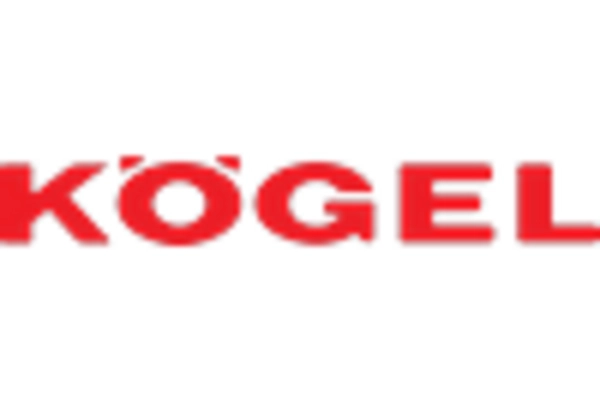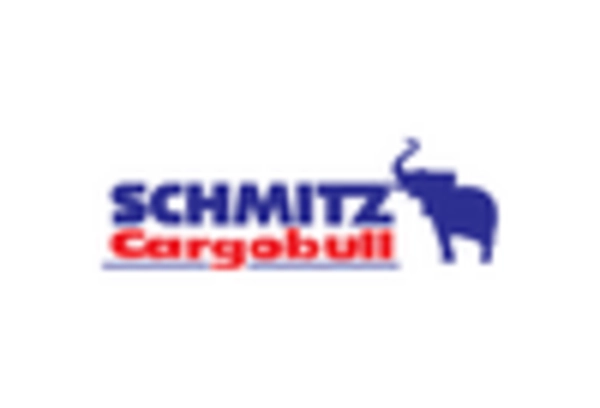Fuel Efficiency Regulations
The implementation of stringent fuel efficiency regulations in Canada is influencing the semi trailer market. As the government aims to reduce greenhouse gas emissions, it has introduced policies that require logistics companies to adopt more fuel-efficient vehicles. By 2025, it is anticipated that compliance with these regulations will drive a shift towards advanced semi trailer designs that optimize fuel consumption. This transition not only aligns with environmental goals but also offers cost savings for operators. Consequently, the semi trailer market is likely to witness an increase in demand for innovative trailers that meet these regulatory standards, fostering a competitive landscape.
Rising Demand for E-commerce
The surge in e-commerce activities in Canada is driving the semi trailer market. As online shopping continues to gain traction, logistics companies are increasingly investing in their transportation fleets to meet the growing demand for timely deliveries. In 2025, the e-commerce sector is projected to account for approximately 15% of total retail sales in Canada, necessitating an expansion in freight capacity. This trend compels logistics providers to acquire more semi trailers, enhancing their operational efficiency and ensuring they can handle the increased volume of goods. Consequently, the semi trailer market experiences a robust growth trajectory, as companies seek to optimize their supply chains and improve delivery times.
Infrastructure Development Projects
Ongoing infrastructure development projects across Canada are significantly impacting the semi trailer market. The government has allocated substantial funding for the enhancement of transportation networks, including highways and bridges. In 2025, it is estimated that infrastructure investments will reach approximately $10 billion, creating a favorable environment for the logistics sector. Improved infrastructure facilitates smoother transportation of goods, thereby increasing the demand for semi trailers. As logistics companies adapt to these developments, they are likely to invest in modern semi trailers that can efficiently navigate enhanced roadways, further propelling market growth.
Growing Demand for Refrigerated Transport
the increasing demand for refrigerated transport in Canada notably drives the semi trailer market. With the rise in consumer preference for fresh and perishable goods, logistics companies are expanding their fleets to include refrigerated semi trailers. In 2025, the market for refrigerated transport is projected to grow by approximately 8%, reflecting the changing dynamics of consumer behavior. This trend compels logistics providers to invest in specialized semi trailers that can maintain optimal temperature conditions during transit. Consequently, the semi trailer market is likely to experience growth as companies adapt to the evolving needs of the food and pharmaceutical sectors.
Technological Integration in Fleet Management
the integration of advanced technologies in fleet management reshapes the semi trailer market. Companies are increasingly adopting telematics and GPS tracking systems to enhance operational efficiency and reduce costs. In 2025, it is projected that around 30% of logistics firms in Canada will utilize such technologies to monitor their fleets. This trend allows for real-time data analysis, enabling better route planning and maintenance scheduling. As a result, the demand for semi trailers equipped with these technologies is expected to rise, as companies seek to improve their logistics capabilities and gain a competitive edge in the market.
















